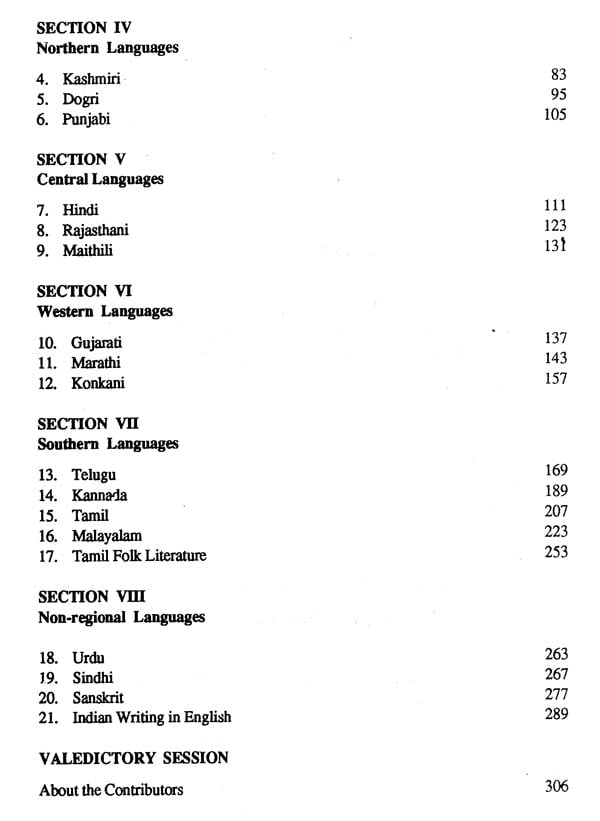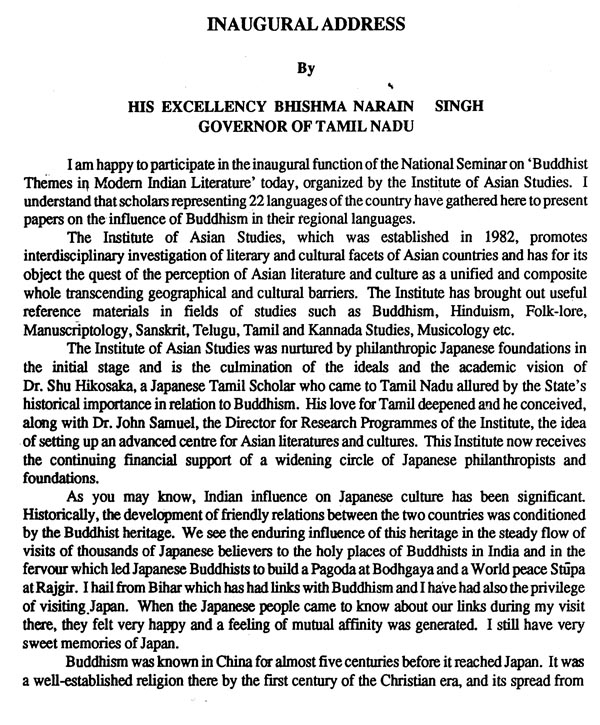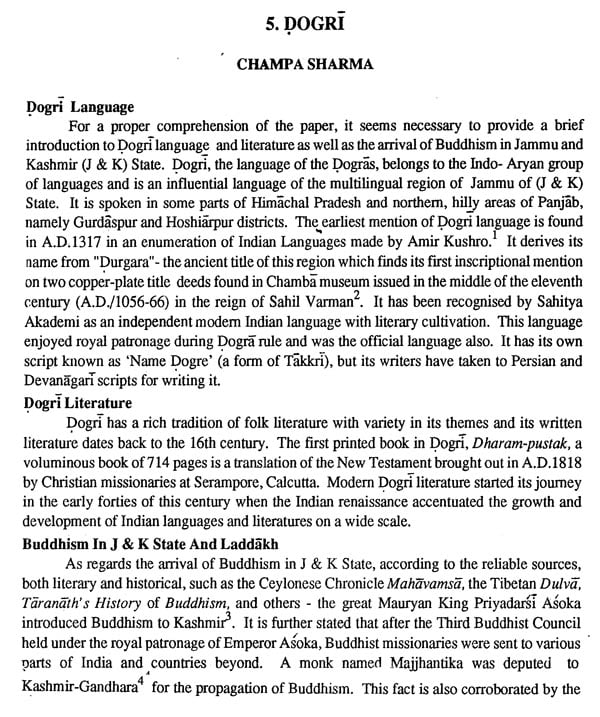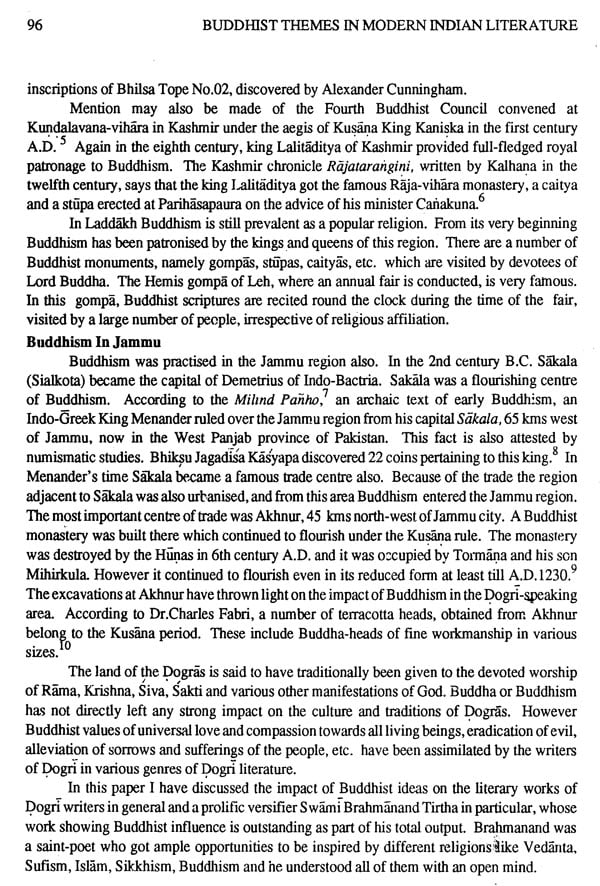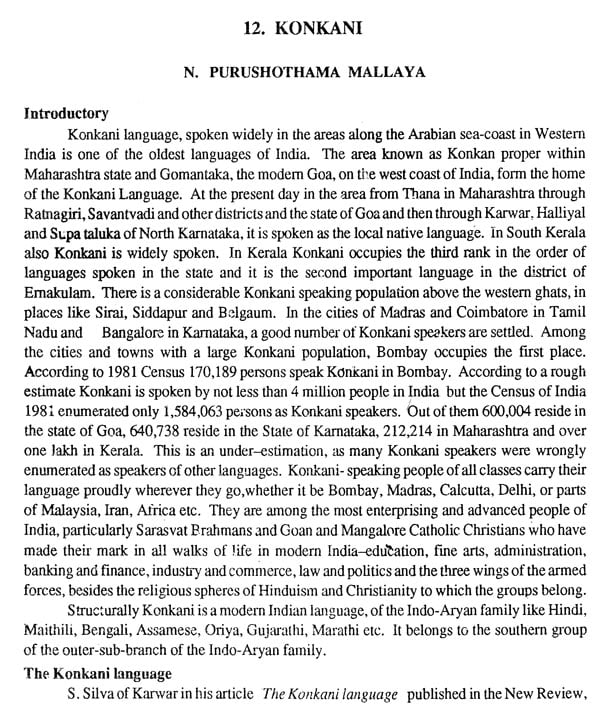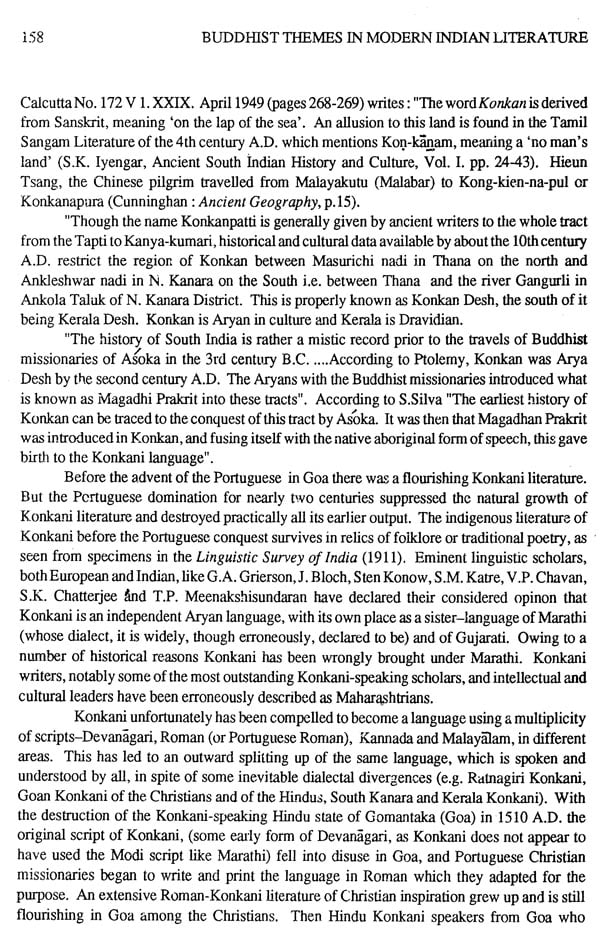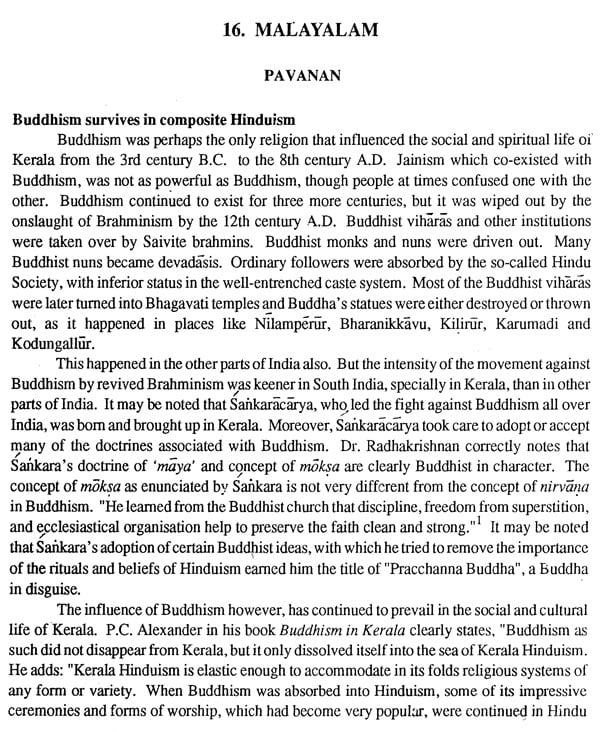
Buddhist Themes in Modern Indian Literature- Seminar Papers (An Old and Rare Book)
Book Specification
| Item Code: | NAY770 |
| Author: | J. Parthasarathi (Ed) |
| Publisher: | Institute of Asian Studies, Chennai |
| Language: | English |
| Edition: | 1992 |
| Pages: | 309 |
| Cover: | PAPERBACK |
| Other Details | 9.50 X 7.00 inch |
| Weight | 680 gm |
Book Description
The Institute of Asian Studies, Madras, is a dream come true, of Japanese-Indian collaboration in the field of scholarship, bringing into being an institutional frame-work for the pursuit of advanced studies on Asian languages and cultures with a comparative and interdisciplinary thrust, aimed at revealing their unity in the midst of their diversity. Though less than a decade old, it has built up departments of study for several Indian languages, Indian folklore and Japanese and more importantly for Buddhism, the golden thread which strings together all Asian culture. These departments have now established a record of standard research and production of reference material and literary works.
As one of the prime motivations of its founding, the Institute has been paying great attention to Buddhist studies and a branch has also been opened recently in Kyoto, Japan, carrying the Institute's activities to a Buddhist country. The present National Seminar on Buddhism in India has been thought of to arouse new interest in this field and even when it was mooted, it received warm welcome from knowledgeable scholars here and abroad. Through Dr.Shu Hikosaka the Director for Administration of this Institute, Japanese philanthropist Rev. Suigan Yogo provided liberal funds for the holding of this seminar and enabled it to achieve success, on the administrative and academic sides and win all-round appreciation. His munificence is beyond expressions of gratitude. He has also favoured us with an exciting piece of calligraphy representing the Buddhist concept of Compassion (Karuna) which adorns this publication. It may interest readers to know that an International Seminar on Tamil Buddhism, has also been projected for May 1992 by the Institute in association with the University of Uppsala, Sweden.
The lead topic chosen for the present National Seminar on Buddhist themes has been enlarged to include the main aspects of socio-political activism and the leaders thereof, inspired by Buddhism in modern India. This is a related subject. The term 'Modem Indian Literature' has been taken to include all languages which have claims to the possession of literatures, recognized by the Sahitya Akademy up to date. This approach has meant the inclusion of minor languages with marginal and even inconsiderable ouputs of literature in this seminar. The satisfaction here is that the whole linguistic picture of the subcontinent of Post-independence India has been covered, showing its contours of literary cultivation on broad lines. A perusal of the papers for twenty languages given in this volume will show that they are only preliminary surveys of Buddhist influences against the backgrounds of the literatures concerned, done with the writers' own orientations and that they do not exhaust all the data or the points of view for analysing the data However their value in providing the first glimpse of modern Indian literature from the special angle of Buddhism in its broad sense has to be taken to outweigh the limitations which expert critics may see in them.
The programme of the Seminar sessions as conducted, follows this preface. The papers presented therein according to conveniences of speakers and practical constraints have been rearranged in this volume in the order of the geographical regions of India - East, North, Centre, West and South; non-regional languages come last. Contiguous influences may emerge in view by this geographical positioning. The rich crop of modern Indian Buddhist literature has been brought to light for harvesters to put forth their further effort for reaping the golden sheaves.
The Institute places on record its appreciation of the devoted services of many of the members of its staff who cooperated in organising the Seminar on Buddhism and contributing to its excellence and bringing out this publication. Thanks are due to the artist Mr. James Manickam who designed the outer wrapper and the Printers M/s. Venus Compugraphics.
**Contents and Sample Pages**

